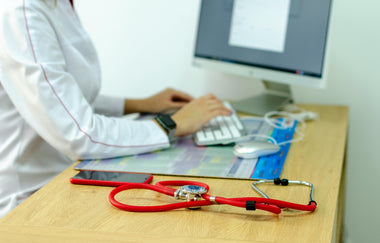Sex and heart disease

Sexual activity is an important component of life and fits right in with this year’s theme of joy. And sex yields many potential health benefits: According to Johns Hopkins, sex is a form of exercise and can help strengthen your heart, lower your blood pressure, reduce stress and improve sleep. In addition, intimacy increases human bonding - and strong social connections help alleviate feelings of loneliness, depression and anxiety which have all been linked to higher heart disease risk. Unfortunately and conversely, according to the American Heart Association, decreased sexual activity and function are common in patients with heart disease and are often interrelated with anxiety and depression.
Patients who have been diagnosed with heart disease are frequently concerned about participating in sex out of fear of causing a heart attack. In reality, the likelihood of sex precipitating a cardiovascular event even in people with heart disease is remote as the physiologic stress associated with intercourse is relatively low - akin to climbing a couple flights of steps or walking a mile. So if you’re able to do those daily activities, you should be safe to engage in sexual activity.
However, being safe and being able don’t always go together. Erectile dysfunction, defined as the inability to achieve or maintain an erection for satisfactory intercourse, is a relatively common health issue. There are many reasons men develop ED, including psychological factors like anxiety and depression, but atherosclerotic disease is definitely something to consider, especially if ED is recurrent or progressive. Just like plaque accumulation can affect blood flow to the heart, legs or brain, plaque accumulation can affect blood flow to the penis preventing the increase in blood flow needed to start or maintain an erection. Which is why doctors at Harvard consider ED a barometer of vascular health and a potential early indicator of heart disease.
OK – that’s the not-so-good news. The flip side – and good news - is that there’s a lot you can do to improve sexual health. And no surprise, lifestyle modification can be powerful medicine. According to Cleveland Clinic quitting smoking for a year can yield a 25% improvement in erectile function. Losing weight, especially if you start out as obese, can completely resolve ED. Managing high blood pressure and high cholesterol help too as both of these conditions affect blood vessels directly. In terms of nutrition, the Mediterranean diet has been shown to improve erectile function.
Finally, it’s important to point out that many medications can contribute to ED. The most common culprits that I see are beta blockers – drugs like atenolol and metoprolol. Beta blockers can prevent small blood vessels from dilating. They can also be sedating and even make you feel depressed. But ruling out a drug cause is something that should only be left to your doctor. NEVER stop a medication on your own. Beta blockers, especially, should NEVER be stopped abruptly.
Regardless of the cause, if you are experiencing erectile dysfunction, speak with your care provider. Evaluations and effective treatments are available but help can’t be offered if your doctor doesn’t know the health issue exists. And because ED can be an early sign of vascular disease, it’s definitely not a symptom you should ignore or keep hidden from your doctor.
In the meantime, whether or not ED is a concern, know that everything you’re doing to help lower cholesterol, improve blood pressure, lose weight and stay physically active will reward you many times over - not just with a healthy heart but with a healthy love life too.
Happy Valentine’s Day!

Tested & Proven Results.
- Cardiologist formulated
- Supported by over 500 publications
- Clinically-proven, in a double-blind randomized trial with Mayo Clinic and The University of Manitoba
80% of participants lowered their cholesterol in just 30 days. With just two servings per day, Step One Foods offers a proven-effective way to naturally lower LDL (bad) cholesterol.
Get heart health tips and articles like this, delivered right to your email.
New articles every week.
You may also like...

The Most Misunderstood Heart Number (Plus Your Tune-Up Checklist)

You don’t need to avoid foods with cholesterol…except for these



